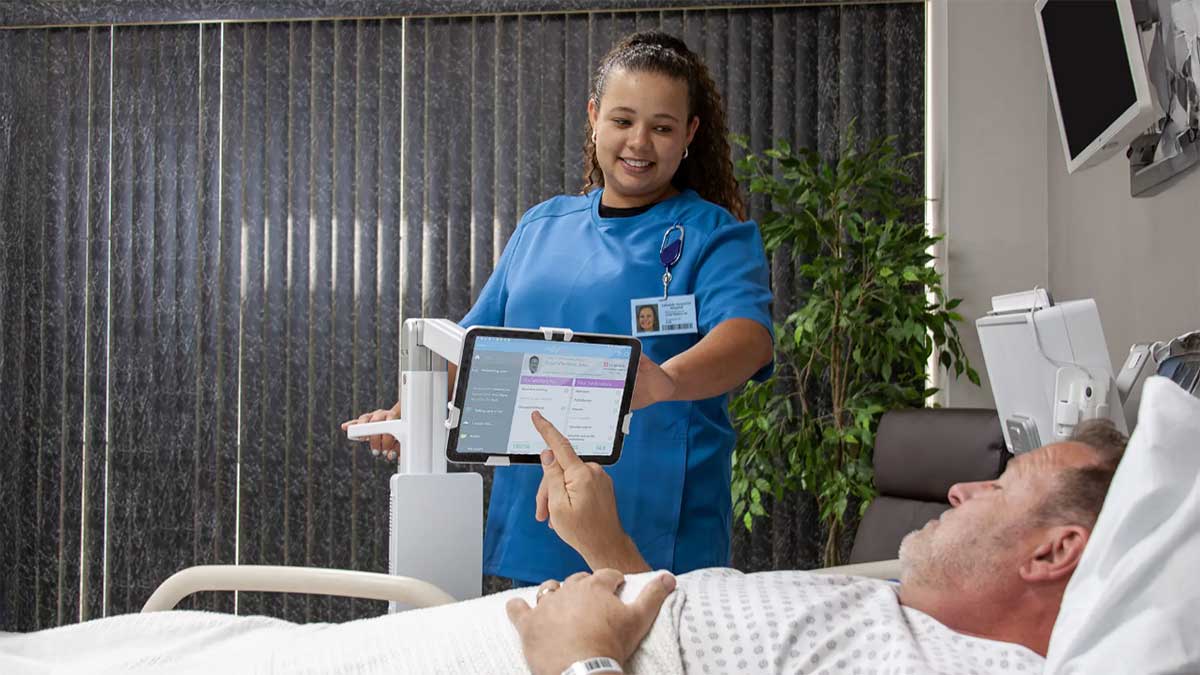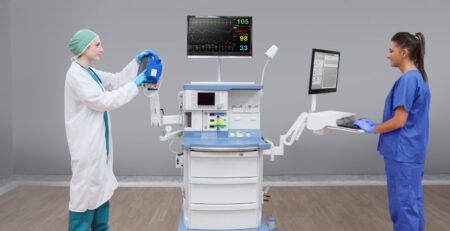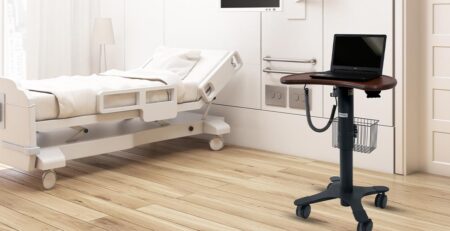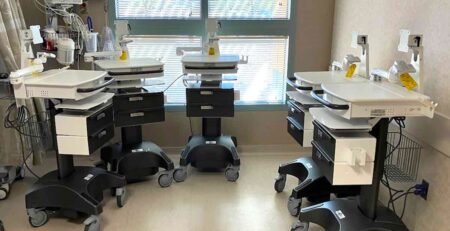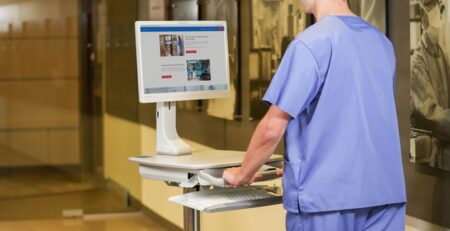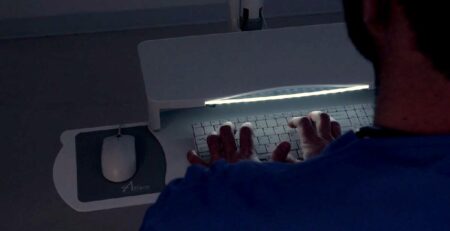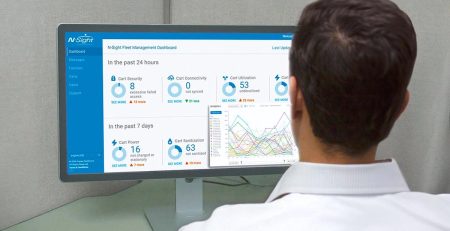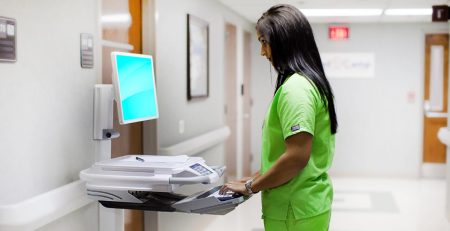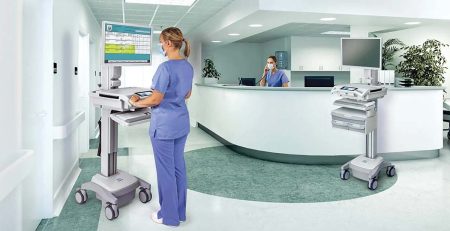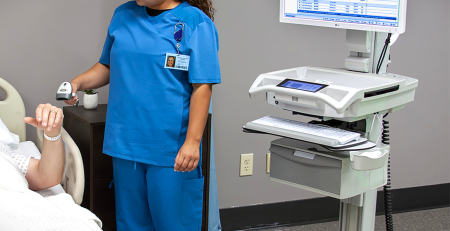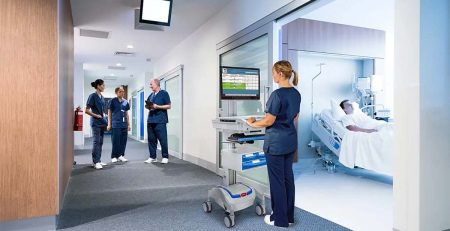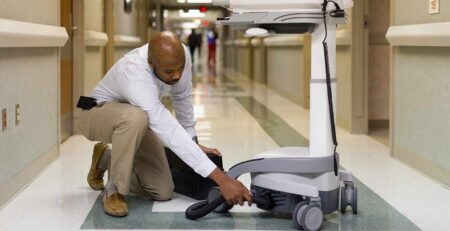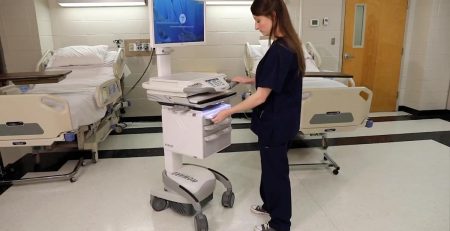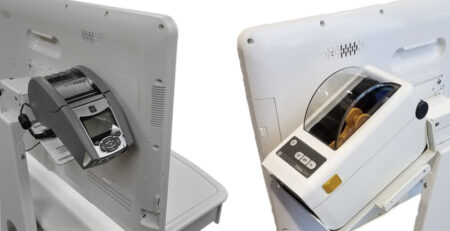5 Top Use Cases for Tablet Carts in Healthcare
The COVID-19 pandemic accelerated the adoption of virtual care across healthcare systems worldwide. As a result, providers sought safe, efficient ways to maintain continuity of care, tablet carts emerged as a practical solution to expand access, support remote services, and improve patient experiences. Today, with continued innovation in telehealth and digital health tools, mobile tablet mounts are widely deployed to enhance care delivery at the bedside, in outpatient settings, and beyond.
Looking for tablet cart products? Click here.
What Are Tablet Carts?
Tablet carts are lightweight, mobile workstations that hold and charge tablets, allowing healthcare providers to move seamlessly from room to room with secure access to electronic health records (EHRs), telehealth apps, and clinical software.
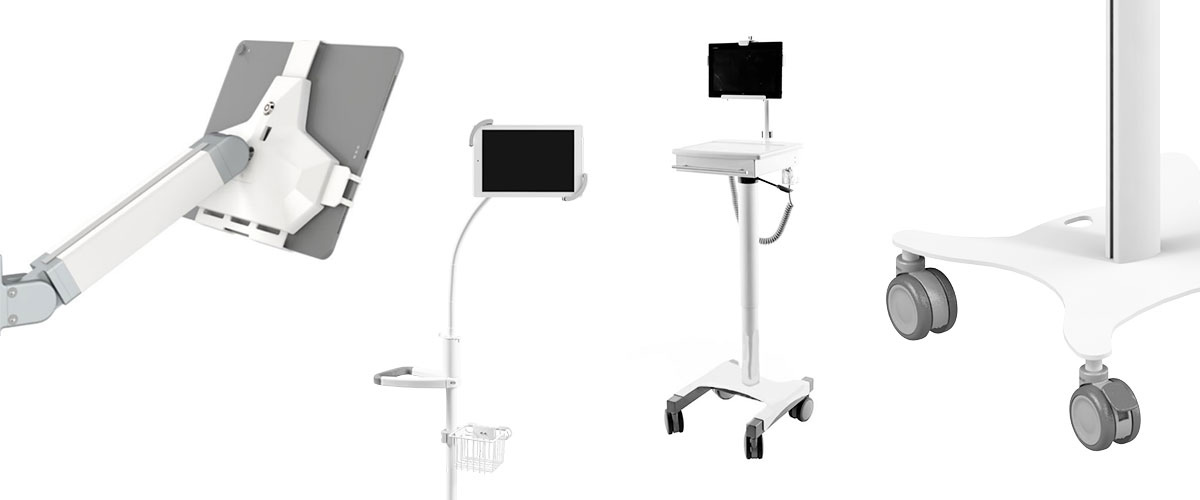
Use Cases for Tablet Carts in Healthcare:
1. Telehealth and Virtual Rounding
Tablet rolling carts enable secure video connections between patients and remote specialists. Specifically, they’re ideal for virtual consultations, specialist rounding, and behavioral health visits, especially where in-person care is limited. As a result, patients no longer have to travel across the country to access expert care – they can now connect with providers from the comfort of their hospital room or local facility.
2. Patient Education & Engagement
Providers can use rolling tablet stands to deliver educational tools, discharge instructions, and visual aids, improving patient understanding and adherence to care plans. In turn, this easy access to information empowers patients to take a more active role in their health and recovery.
3. Video Remote Interpretation (VRI)
Tablet carts provide quick access to certified interpreters through video. This capability supports real-time translation and improves communication with patients who have limited English proficiency or are deaf or hard of hearing. Moreover, it helps facilities meet language access and compliance requirements.
4. Patient Registration
Staff can use mobile tablet mounts to streamline check-in and registration processes at the bedside or in outpatient settings, reducing wait times and improving data accuracy. Consequently, patient intake becomes more efficient, accurate, and less stressful.
5. Virtual Visiting
For patients unable to receive in-person visitors, tablet carts offer a secure, mobile solution for virtual family connections, supporting emotional well-being. In this way, they help maintain essential social bonds during care.
Why Healthcare Facilities Are Investing in Tablet Roll Stands
Hospitals, clinics, and long-term care facilities are increasingly turning to tablet roll stands as a smart, scalable solution for modern care delivery. Thanks to their versatility, they are suitable across departments, from ICU to outpatient registration, and easy to reposition based on shifting patient volumes or clinical needs.
In addition to reducing the burden on IT and facility resources, tablet carts help providers streamline workflows, improve communication, and expand access to services like interpretation, virtual care, and patient education. With the growing need for hybrid care models, tablet carts support both in-person and virtual experiences, making them a valuable long-term investment in a more connected, patient-centered healthcare system.
Mobile Tablet Carts at Convergint Innovative Medical
Tablet carts are more than a convenience – they are a key enabler of smart, connected healthcare. Whether it’s streamlining workflows or expanding access to virtual care, these mobile tools are shaping the future of patient-centered delivery.
Visit our Tablet Care Overview here, or contact us now to get free assistance finding the right solution for your use case.

